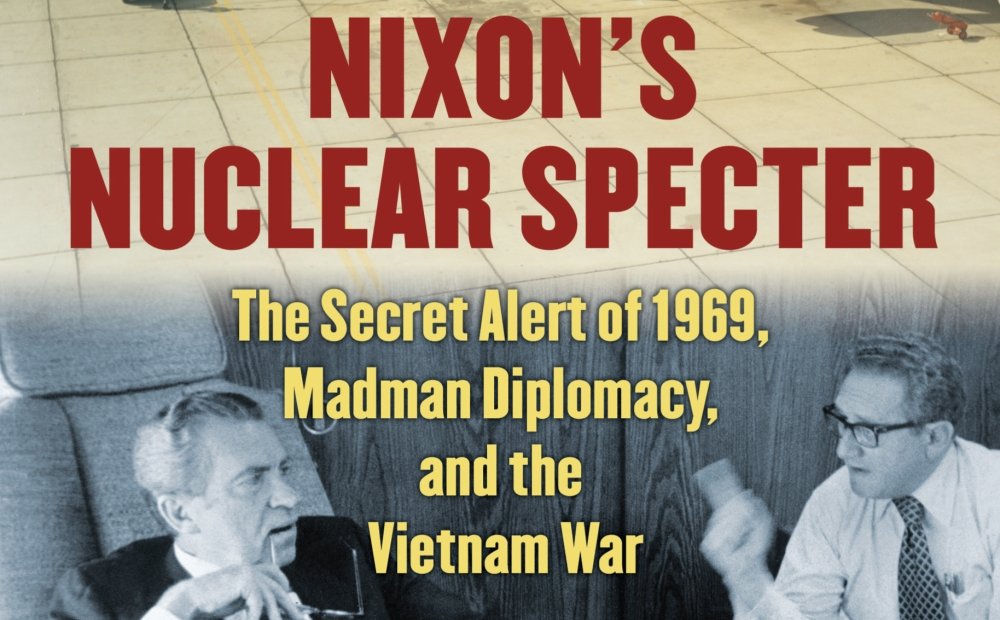Nixon's Nuclear Specter - The Secret Alert of 1969, Madman Diplomacy, and the Vietnam War

In their initial effort to end the Vietnam War, Richard Nixon and Henry Kissinger attempted to lever concessions from Hanoi at the negotiating table with military force and coercive diplomacy. They backed up their diplomacy toward North Vietnam and the Soviet Union with the Madman Theory of threatening excessive force, which included the specter of nuclear force. They began planning for a massive shock-and-awe military operation referred to within the White House inner circle as DUCK HOOK.
The initial DUCK HOOK concept included proposals for tactical nuclear strikes against logistics targets and ground incursions into the North. In early October 1969, however, Nixon aborted planning for the long-contemplated operation, having been influenced by Hanoi's defiance in the face of his dire threats and concerned about U.S. public reaction, antiwar protests, and internal administration dissent. In place of DUCK HOOK, Nixon and Kissinger launched a secret global nuclear alert in hopes that it would lend credibility to their prior warnings and perhaps even persuade Moscow to put pressure on Hanoi. The risky gambit failed to move the Soviets, but it marked a turning point in the administration's strategy for exiting Vietnam. Nixon and Kissinger became increasingly resigned to a long-route policy of providing Saigon with a decent chance of survival for a decent interval after a negotiated settlement and U.S. forces left Indochina.
Authors William Burr and Jeffrey P. Kimball draw upon extensive research in participant interviews and declassified documents to unravel this intricate story of the October 1969 nuclear alert. They place it in the context of nuclear threat making and coercive diplomacy since 1945, the culture of the Bomb, intra-governmental dissent, domestic political pressures, the international nuclear taboo, and Vietnamese and Soviet actions and policies.
William Burr is senior analyst, National Security Archive, George Washington University.
Jeffrey P. Kimball is professor of history, emeritus at Miami (OH) University. He is the author of The Vietnam War Files and Nixon’s Vietnam War, both published by Kansas University Press.
Hosted By

Cold War International History Project
The Cold War International History Project supports the full and prompt release of historical materials by governments on all sides of the Cold War. Read more


History and Public Policy Program
A leader in making key foreign policy records accessible and fostering informed scholarship, analysis, and discussion on international affairs, past and present. Read more


Nuclear Proliferation International History Project
The Nuclear Proliferation International History Project is a global network of individuals and institutions engaged in the study of international nuclear history through archival documents, oral history interviews, and other empirical sources. Read more
